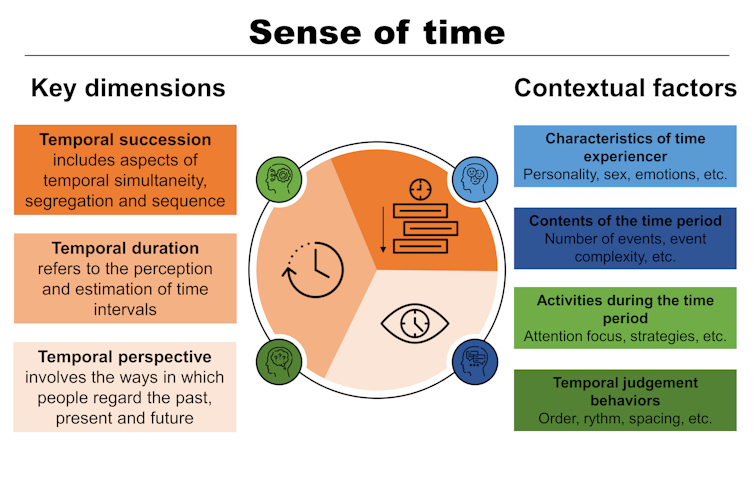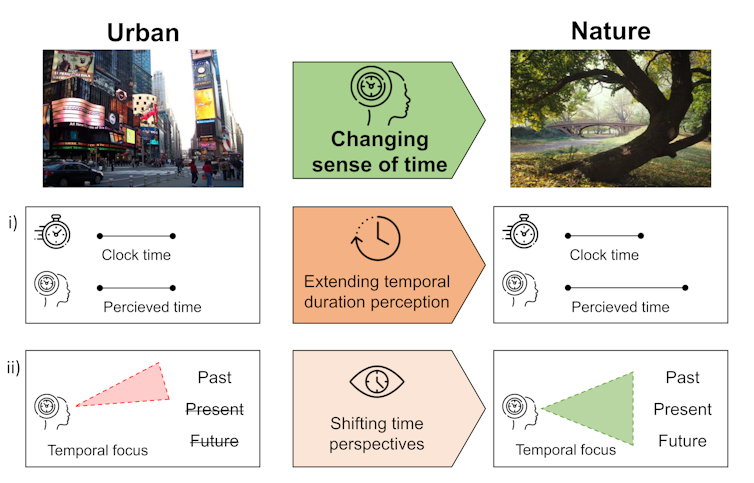Nature's Healing Touch: Restoring Our Sense of Time
Written on
Chapter 1: The Deteriorating Sense of Time
In today's high-pressure environment, where every moment counts, our relationship with time is becoming increasingly strained. The relentless drive for productivity has accelerated the pace of life to a level that can feel overwhelming. With technology dominating our daily routines, the passing of time seems even more elusive. This sensation is particularly acute in bustling metropolitan areas, where days and weeks can seem to vanish in the blink of an eye.
Many individuals now report a persistent feeling of time scarcity. This phenomenon arises from both the practical use of time and how we perceive it. Lengthy work hours reduce the availability of time for leisure activities, while the fast-moving, crowded urban lifestyle can lead to mental fatigue, impacting our time perception.
Recent findings suggest that immersing ourselves in nature may offer a remedy for this widespread time scarcity associated with modern urban living. The way humans perceive time is inherently subjective and heavily influenced by the environments we engage with.
Section 1.1: Understanding Human Time Perception
Human perception of time consists of three primary dimensions. The first dimension is temporal succession, which refers to our ability to perceive the sequence and overlap of events. For example, we can distinguish between flipping a light switch and the light illuminating, allowing us to navigate our surroundings effectively.
The second dimension is temporal duration, which describes how we perceive and estimate the length of time an event occupies. A tedious afternoon at the tax office can seem to stretch indefinitely, while time spent with friends may feel fleeting. Phrases like “time stood still” or “time flies when you’re having fun” reflect our nuanced understanding of temporal duration.
The third dimension, known as temporal perspective, involves our views on the past, present, and future. Humans possess a remarkable ability to mentally navigate through time, reflecting on various periods. While some may tend to dwell on past events or focus on future goals, a balanced time perspective is often indicative of good mental health.

These dimensions collectively shape our understanding of time. However, our perception can vary dramatically based on personal experiences and environmental factors. For instance, time can feel significantly altered when we are preoccupied with work, caught in traffic, or undergoing an uncomfortable dental procedure.
Section 1.2: The Restorative Power of Nature
Experiences in nature can offer profound mental, physical, and emotional rejuvenation, influencing our perception of time positively.
Evidence from psychological studies indicates two primary ways natural environments can enhance our time perception. The first is through the expansion of our sense of temporal duration. Research shows that when participants are asked how long they have been walking in natural versus urban settings, they tend to overestimate the time spent in nature, experiencing it as longer compared to city strolling.

The second way nature can alter our time perception is by encouraging a shift in perspective. In one study, participants who spent a brief period in silence outdoors reported a stronger focus on the present moment compared to those who remained indoors.
Other research has similarly indicated that nature experiences can help individuals adopt a more positive outlook on the present, reducing preoccupations with the past.
While the mental and physical benefits of nature are well-documented, the notion that these experiences can improve our relationship with time is relatively new. This insight underscores the significance of nature in promoting human well-being.
Further exploration of how nature influences our time perception may guide us in creating healthier, more sustainable urban environments.
Chapter 2: Exploring the Benefits of Nature
This video highlights the mental and physical health benefits derived from spending time outdoors, emphasizing the connection between nature and well-being.
In this video, a mental health expert discusses the advantages of engaging with nature, illustrating how these experiences can foster a healthier mindset.